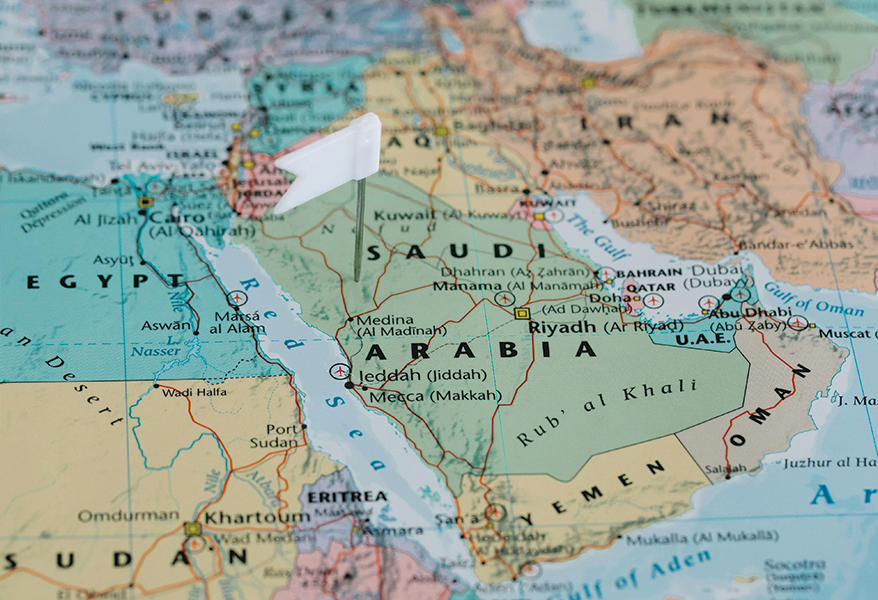With rapid advancements in solar technology, many countries are increasingly embracing solar PV installations. However, the arid climate in some regions presents a unique challenge for solar panels: dust accumulation, which significantly reduces solar intensity and energy production efficiency. At Plentiful Energy, we have invested in cutting-edge solutions to address this issue, including the development of intelligent solar-cleaning robots through our subsidiary, Solinovare Ltd. With the motto, Home to Artificially Intelligent Machines, Solinovare is pioneering solar maintenance technology tailored for dusty, water-scarce environments, such as those in the Middle East and North Africa.
Dust accumulation on solar panels is a significant problem in arid climates, blocking sunlight and diminishing energy output. Research demonstrates the impact: even a small amount of dust can drastically lower solar intensity. In a study by El-Shobokshy and Hussein, dust particles as small as 5 µm were shown to cause substantial reductions in solar intensity, especially at higher dust deposition densities. The effect of dust is even more pronounced with smaller particles, such as carbon (5 µm) and cement (10 µm), as illustrated below.

In high-dust regions, such as those common in the Middle East, energy losses due to dust accumulation can reach as much as 10% per year, even with weekly cleaning. For investors in solar energy, particularly in desert regions, this loss translates into reduced returns and increased maintenance costs. Addressing dust accumulation with efficient, water-free solutions is thus essential for optimising solar energy production and ensuring long-term sustainability.
Traditional methods of solar panel cleaning, such as water-based washing or manual cleaning, present numerous challenges. In the Middle East, where water is scarce and temperatures are extreme, these methods can be impractical, costly, and environmentally unsustainable. Solinovare’s intelligent solar-cleaning robots offer a solution designed to overcome these limitations.
Solinovare’s robots are equipped with AI-driven sensors to detect dust levels, allowing them to operate only when necessary. Unlike water-based cleaning systems, they use dry, mechanised brushes that sweep away dust particles without the need for any water. This approach not only conserves water but also eliminates the risk of thermal shock—a common issue in water-based cleaning, where temperature differences between water and solar panels can damage the panels. Solinovare’s robots operate autonomously, powered by onboard solar panels and batteries, allowing them to clean up to 2 km of panel rows daily.
In arid regions, robotic cleaning systems have proven to be more efficient and sustainable than traditional methods. Water-free operation conserves resources, a crucial factor in water-scarce regions like the Middle East. Daily cleaning ensures that solar panels operate at peak efficiency, maximising energy production and reducing maintenance costs. Although robotic systems require a higher initial investment, they lead to significant long-term savings by eliminating labour costs and preventing dust build-up that could impair panel performance. Equipped with solar panels and rechargeable batteries, Solinovare’s robots require no external power source, and their cleaning schedules can be adjusted based on dust levels, ensuring energy efficiency.
Investing in robotic cleaning technology brings multiple economic and environmental benefits. By maintaining higher energy efficiency, these robots directly contribute to reducing the levelised cost of solar electricity, making solar energy more competitive with fossil fuels. For Middle Eastern solar projects, this translates into stronger returns on investment and more consistent power output, even in dusty conditions. Environmentally, water-free cleaning reduces strain on local water resources, while increased solar panel efficiency contributes to sustainability goals by producing more energy with fewer resources and supporting carbon emission reduction targets.
At Plentiful Energy, our mission is to make renewable energy accessible, efficient, and sustainable. Through Solinovare Ltd, we are leading innovation in solar maintenance by investing in young, creative minds who have designed these robots to meet the specific challenges of the Middle Eastern environment. By harnessing AI and robotics, Solinovare is optimising solar energy production in dust-prone regions, demonstrating our commitment to sustainability and pioneering technology in the renewable energy sector.
As global energy demand rises by an estimated 50% by 2040, access to efficient, clean energy sources becomes crucial. Solinovare’s intelligent solar-cleaning robots are a step forward in ensuring that solar power remains a viable and competitive option in the Middle East. By reducing maintenance costs and conserving water, these robots not only increase the economic viability of solar energy but also align with Plentiful Energy’s mission of providing sustainable solutions for the future.
Solinovare’s intelligent cleaning robots embody the future of solar energy in arid and dusty regions. By developing solutions tailored to the unique environmental challenges of the Middle East, Plentiful Energy is paving the way for a more sustainable, resilient, and efficient energy landscape. As we continue to expand our innovations, we remain dedicated to empowering communities with renewable energy that is not only accessible but also optimised for the specific demands of the region.


